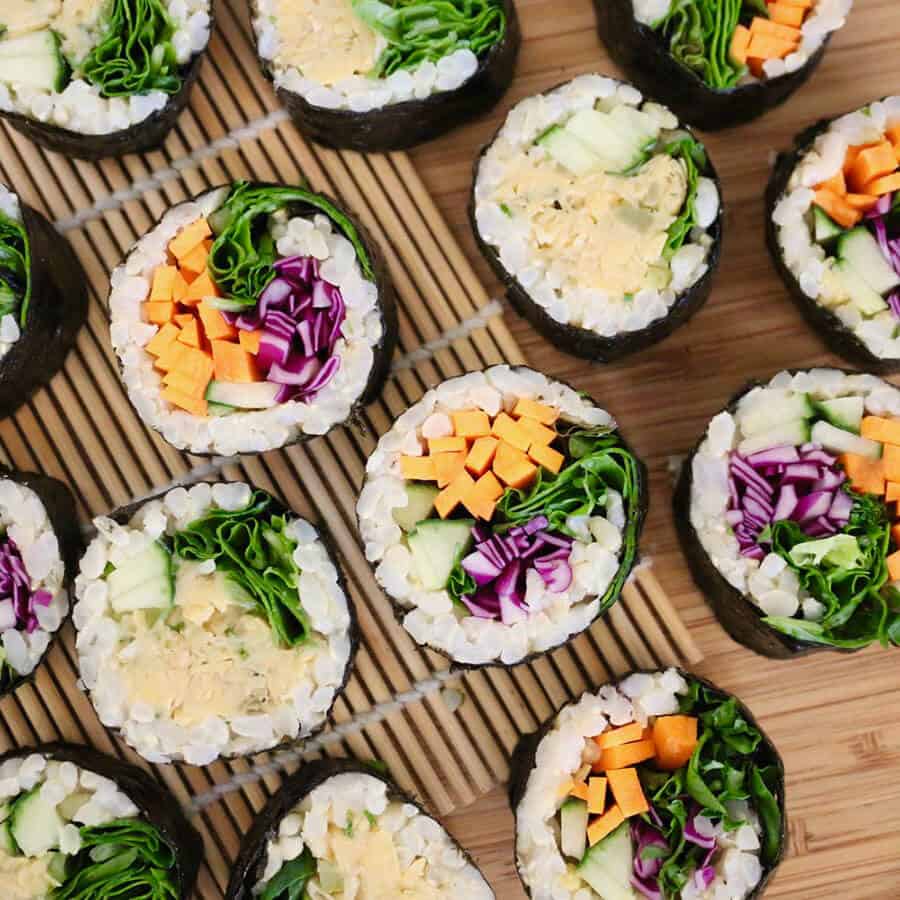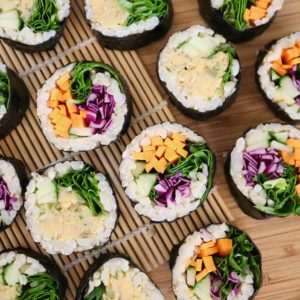
This delicious recipe puts a fun twist on traditional flavors.
Homemade sushi is actually easier than it looks, and tastes even better than what you'd get at a restaurant.
Created by our friend Nina Gelbke of "Naturally Nina.

Chickpea "Tuna" Sushi
Ingredients
- 1 cup Chickpeas
- 2 tbsp Oil-free hummus
- 2 tbsp Capers, roughly chopped
- 1/4 cup Pickles, diced
- 2 tbsp Fresh chives, finely chopped
- Black pepper, to taste
- 1 tbsp Dijon mustard
- 1-2 tbsp Lemon juice
- 1 cup Brown rice, cooked
- 1 Cucumber, thinly sliced
- 4 Nori sheets
Instructions
- Mash chickpeas with a fork so there are no whole chickpeas left and the mixture resembles a canned tuna consistency.
- Stir in the hummus, dijon mustard, capers, chives, pickles, black pepper and lemon juice and mix until well combined and the mixture begins to stick together. You may have to add a splash of water if it's too dry!
- Spread rice out evenly onto your nori sheets, then add a layer of chickpea filling and cucumber sticks down the middle.
- Roll up your sushi tightly, slice up and serve with all your favorite sushi condiments!
- Notes: You can also add other vegetables if desired, such as carrots, purple cabbage, green onion, red bell pepper, or spinach.

